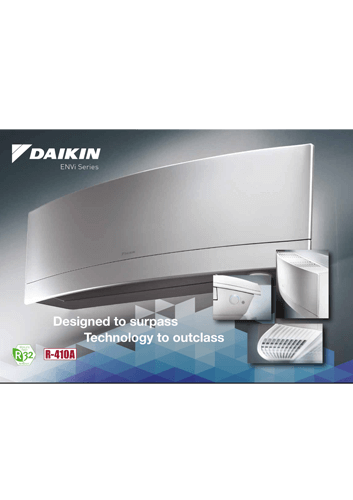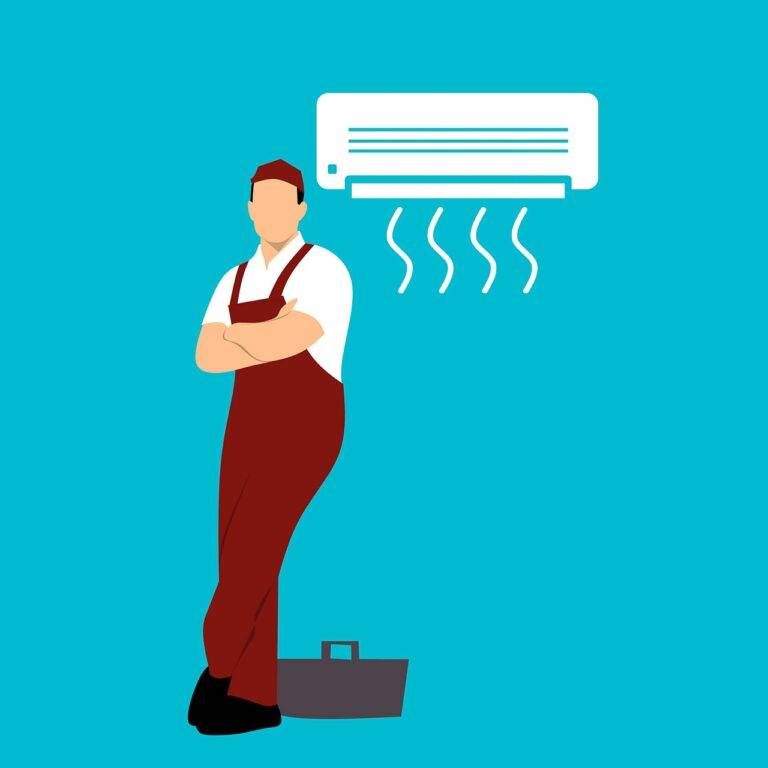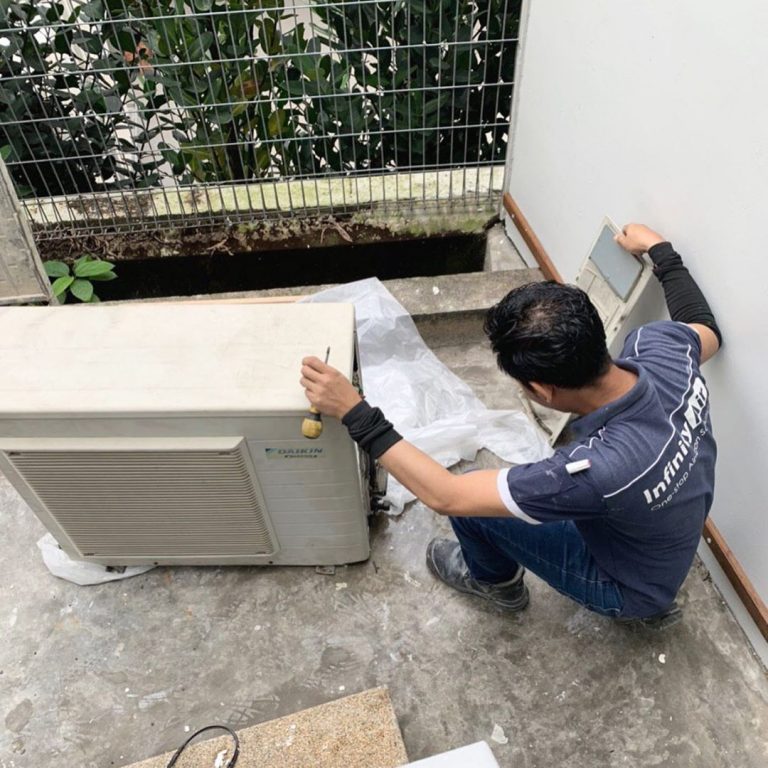Aircon gas leaks are dangerous and can be potentially fatal if not taken care of promptly. Short-term exposure may result in heightened heart rate, cracking of skin, irritation to the eyes, or even convulsion. Long-term exposure can cause medical complications such as skin cancer, breathlessness, falling unconscious, and other health issues as well. Therefore, it is crucial to know how to spot a gas leak, and how to deal with it. This article will cover these topics to better equip you with the knowledge if you ever come across a faulty aircon gas leak.
Aircon Gas Leak – What and How?
To cool your room, air-conditioners uses a type of refrigerant that contains chlorine, known as chlorofluorocarbons (CFC) which is used in the refrigerant cycle for the heat exchange process. Generally, CFCs are considered toxic chemicals and long-term exposure is strongly discouraged.
When a gas leak occurs, you will notice that your aircon is not cooling your room properly, which results in an aircon not cold situation. This is because the refrigerant being used for the heat exchange process is lost (being leaked) and effectively, the heat exchange is unable to occur.
When most people try to research “aircon not cold” on their own, they often result in various findings – because if one part of the aircon system stops functioning, the refrigerant cycle gets disrupted and therefore aircon failure occurs. Besides experiencing a faulty aircon system, you will smell a certain type of chemical smell – chloroform type of smell (only for those who have smell it before will know). Otherwise, if you smell something that resembles some type of chemical, your radar should sound some alarms and get it checked!
Causes of Aircon Gas Leaks
There are several potential causes that can result in an air-conditioner gas leak. Most of these issues are best investigated by an aircon professional who knows what to do best. But in any case, just for the better education of the public, here are five common causes:
Corrosion: The aircon coil can be corroded if exposed to water, chemicals or detergents that contain chloride or fluoride. Repeated exposure can cause small cavities in the coil that may result in gas leaks from pitting corrosion.
Mechanical Damage to Refrigerant Process: The refrigerant cooling process, where heat is being exchanged, is when the refrigerant gas moves between the condenser coil (outdoors) and evaporator coil (indoors). These coils are usually made of copper, and if the coils somehow get damaged, it may result in flowing the refrigerant elsewhere that result in a gas leak.
Faulty Schrader Valve: A Schrader valve in your air-conditioning system is a type of mechanism design that enables aircon technicians to easily add or remove the refrigerant or any other gas inside the valve without having to worry about any leakages, especially in a high-pressure environment. If the seal to the Schrader valve gets damaged or becomes faulty, then gas leak may occur.
Control Valve Connection Issues: Do ensure that the control valves are cleaned and properly attached. Otherwise, gas leak may occur in the surroundings of the control valves.
Fitting Controls not Soldered Properly: Manufacturing defects are rare but not impossible. If the internal parts are not soldered properly, cold or overheated joints can form. These can result in aircon gas leakages, which is very difficult to tell unless you have a professional trained eye.
Dangers of Aircon Gas Leak
The biggest threat of an aircon gas leak is to your health. Any liquid (condensation) contact to your eyes can cause severe irritation and frostbite. Overexposure may cause dizziness and loss of concentration, and at higher levels it may result in central nervous system depression and cardiac arrhythmia (irregular heartbeat). In short, gas leak is a health hazard and should not be taken lightly.
Asides from health, your air-conditioning electricity bills will also hike upwards of 20%. The gas leaks will also put more pressure to the compressor which may cause it to break. All these may snowball into a faulty air-conditioning system that requires repair, or in the worst-case scenario, an entire aircon replacement. Therefore, you should treat any potential gas leakage issues seriously to be on the safe side.
What to do if I suspect an aircon gas leak?
If you ever suspect an air-conditioning gas leak, do shut off the entire aircon system and get a professional technician to investigate. For safety reasons, please do not attempt to troubleshoot by yourself unless you know what you are doing. Keep your family safe by pausing all air-conditioning activities until cleared by an aircon technician. You can call our Infinity Air helpline at 6285 6756 or Whatsapp to 9383 6574 to arrange for an inspection. Our company have over 20+ years of experience, with regular training on all types of aircon brand models, especially major brands, to keep them up-to-date with the latest knowhow to inspect and troubleshoot all types of issues.
Conclusion
After reading through the article, you should be better educated and prepared for any potential gas leaks in your home or office environment. It is always better safe than sorry, so if you smell something off, quickly do call your aircon professional immediately and let the experts take care of the issue. One smart way to go about preventive measures is to have your air-conditioner serviced once every 4-6 months, where a qualified and trained pair of eyes will help spot any potential problems before it is too late!


